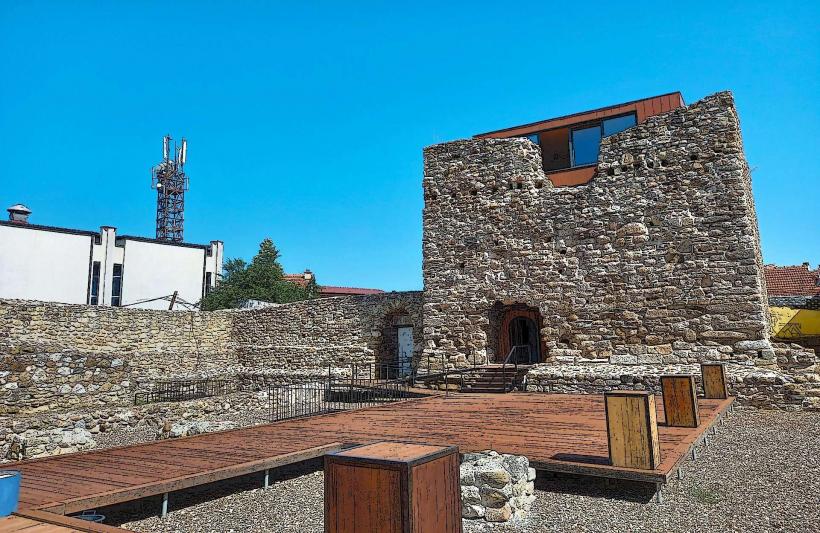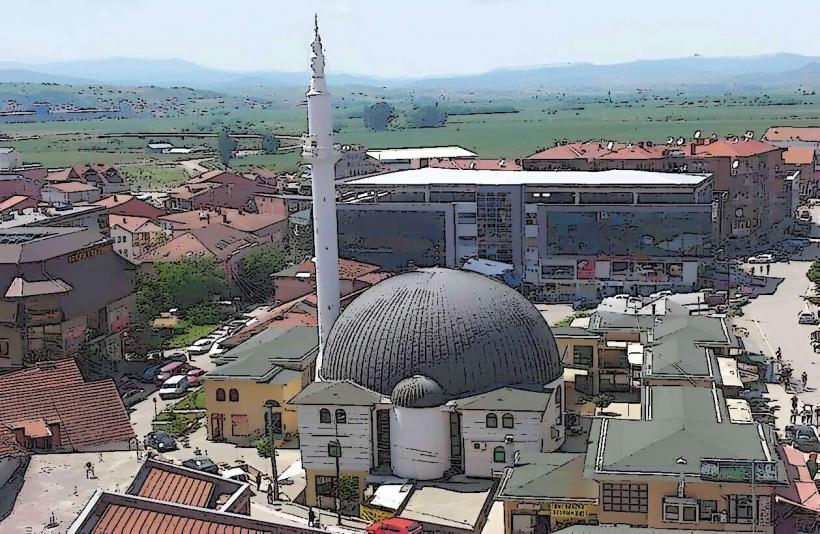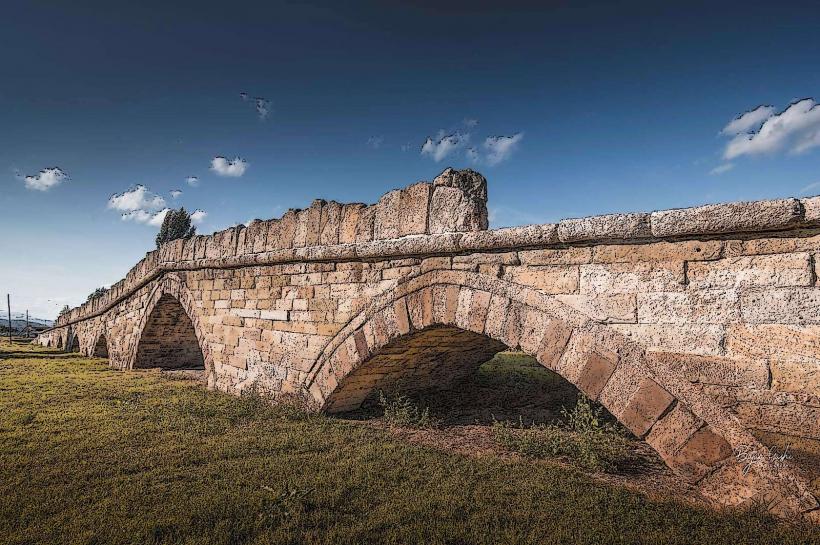Information
Landmark: Memorial of the Battle of KosovoCity: Vushtrri
Country: Kosovo
Continent: Europe
Memorial of the Battle of Kosovo, Vushtrri, Kosovo, Europe
The Memorial of the Battle of Kosovo, specifically known as the Gazimestan monument, is a 25-meter-high stone tower located on a hill approximately 15km south of Vushtrri. It marks the historical site of the 1389 conflict between the Serbian-led coalition and the Ottoman Empire.
Visual Characteristics
The monument is a massive tower constructed of reinforced concrete faced with hewn red-brown sandstone blocks. It features a medieval defensive tower aesthetic with narrow vertical slits resembling arrow loops. At the top of the tower, bronze plaques are inscribed with the "Kosovo Curse" in Cyrillic script, while the surrounding grounds consist of a flat, paved plateau and open grasslands.
Location & Access Logistics
The site is situated directly off the M2 (Prishtina–Mitrovica) highway, roughly a 15-minute drive from Vushtrri. Access is via a dedicated paved road leading to a gated entrance. Parking is available on-site for cars and buses. Public transport is limited to intercity buses traveling between Prishtina and Mitrovica, requiring a 1km walk from the highway drop-off point.
Historical & Ecological Origin
The current monument was designed by architect Aleksandar Deroko and completed in 1953 during the Yugoslav period. It was built on the site of the 1389 Battle of Kosovo to commemorate the fallen soldiers. Geologically, the memorial sits on the "Field of Blackbirds" (Kosovo Polje), a vast karst plain characterized by fertile soil and low-lying vegetation.
Key Highlights & Activities
Visitors can climb the internal spiral staircase to the observation deck at the top of the tower for a 360-degree view of the battlefield and the Sharr Mountains. Educational activities include reading the historical inscriptions and visiting the smaller memorial markers nearby. The site is a primary location for commemorative gatherings every year on June 28th (Vidovdan).
Infrastructure & Amenities
The monument is located within a fenced perimeter frequently monitored by local police or security. There are no restrooms, food vendors, or shops on the site; these are located at gas stations 2km away along the highway. 5G mobile signal is excellent due to the elevated and open terrain. There is no natural shade on the monument plateau.
Best Time to Visit
The site is best visited in the morning or late afternoon to avoid the intense midday sun and for optimal lighting of the sandstone facade. The months of May, June, and September offer the most comfortable weather. Photography is permitted, but visitors should be aware of security protocols at the entrance.
Facts & Legends
Local legend claims that the red "Kosovo Peony" flowers that grow in the surrounding fields only bloom here and were colored by the blood of the fallen knights. A historical oddity is the presence of the nearby Tomb of Sultan Murad (Sulltan Murati Türbe), located 1km away, marking the spot where the Ottoman leader was assassinated during the same battle.
Nearby Landmarks
Tomb of Sultan Murad: 1.2km Southwest
Vushtrri Castle: 15km North
Prishtina City Center: 10km Southeast
Ulpiana Archaeological Park: 18km Southeast
Sitnica River: 3km West




